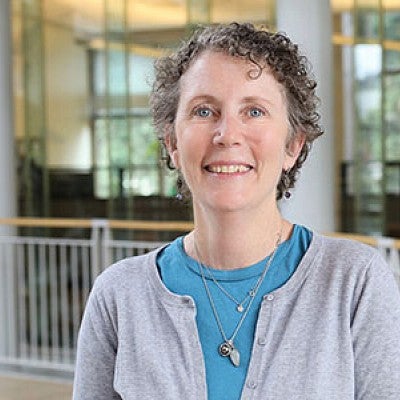
Accounting
mhenney@uoregon.edu | 541-346-3281
Courses: Introduction to Financial Accounting I (ACTG 211, ACTG 612)
In my courses you will:
- Practice foundational, transferrable skills.
- Learn with and from peers.
I was invited into the Teaching Academy because:
- I was a Fellow in the Teaching High-Challenge Gateway Courses CAIT Group.
In what ways are you working to make your teaching inclusive?
1) Deploying a range of methods to engage students and bring out their strengths. 2) Recognizing that accounting can be a very challenging course for some students but everyone can learn something about it. 3) Trying to learn everyone's first name and addressing students by their chosen names and pronouns.
For example, in class I will often ask what the students are thinking about as a major or concentration. I am trying to find a way for them to “connect” their future career with accounting. If I can make the accounting important to their success, they may feel more motivated to learn it.
What do you do in terms of professional engagement with the teaching and learning culture on campus or nationally?
1) Reflecting on my teaching practice and making changes over time that are informed by experimentation, professional teaching development, collegial interactions and class observations, student feedback, and the scholarship of teaching and learning. 2) Soliciting and reflecting on student feedback, and considering what changes, if any, should be made in the course. 3) Attending workshops, conferences, or institutes about teaching and learning; reading books or articles about teaching and learning; participating in formal or informal discussions with their peers about teaching and learning.
For example, I try to attend the American Accounting Association’s Western Regional meeting each year. There are always sessions about effective teaching.
In what ways was your teaching in this course research-led—informed by research on how students learn and inflected by UO's research mission?
While I do not engage in research directly, I do value the research done by my colleagues, especially in this area. To that end, 1) I try to clearly convey the purpose, process for completion, and criteria for evaluation of class assignments before students begin work (transparency). 2) I try to use students’ time in and out of class strategically and actively by, for example: assigning preparatory work beyond reading-only assignments to get
more out of students’ class time; encouraging students to make connections between the preparatory work and the following class or online activities; using students’ class time to harness the power and energy of the peer community.
For example: Some students are natural teachers. I try to make opportunities in each class for the students to work in small groups, where, invariably one student will take the lead and bring the others along.
Who or what made me want to be a teacher?
Actually, I am really an "accidental" teacher. I started my working career as an accountant, on my way to becoming a CPA. After a couple of REALLY busy tax seasons, I thought a more steady work pace would be better for me. I took a job doing counseling and training (enter the "teaching") for people starting their own business. I did a lot of short-course teaching and found that teaching is a net positive activity. People come to the class in need of something - knowledge, direction, inspiration - and the teacher comes with those things to give. Everyone wins. I love watching the "light bulb" go on. I love hearing - "thank you so much, now I understand". Accounting is not the most exciting topic but every entity has to be able to tell their finance story and accounting is the universal language to do that. It is my honor.
